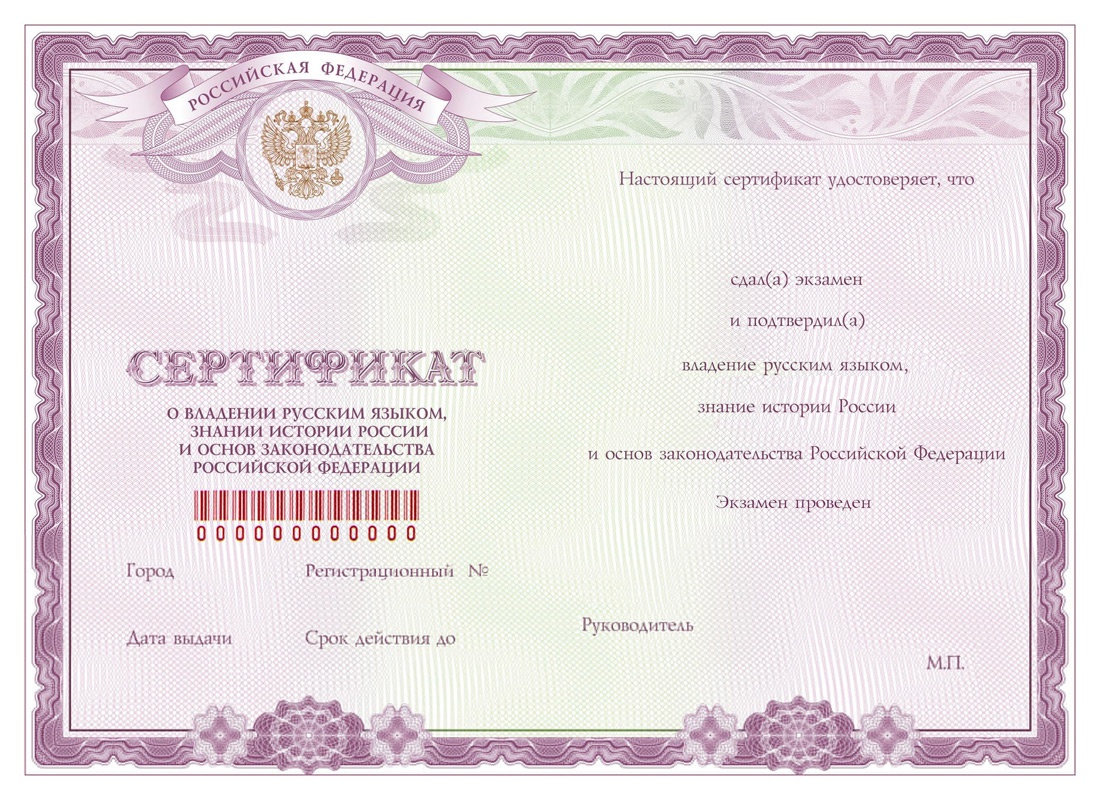Exams for Migrants: Russian Language, History, and Legislation
Why are these exams required?
For those who want to live and work in Russia, several important exams must be passed. These exams assess knowledge of the Russian language, the history of Russia, and the fundamentals of Russian legislation. Passing these exams is mandatory to obtain citizenship, a temporary residence permit, permanent residency, a work patent, or a work permit.

These exams are a vital step toward integration into Russian society. They help ensure that a person:
- understands the language of the country they plan to live in;
- knows the basic historical milestones of Russia;
- is familiar with the country’s laws and regulations.
Understanding these areas helps ensure safety and cultural harmony within society.

How are the exams conducted?
The exams are administered by special accredited institutions approved by the Government of the Russian Federation. There are separate sections for each subject — language, history, and legislation. The Russian language exam checks the ability to speak, read, and write. The history and legislation exams consist of questions about key events and legal frameworks.
Russian Language
The Russian language exam assesses language proficiency. You must be able to:
- read and understand texts;
- speak and answer questions;
- write simple messages and fill out documents.
History of Russia
Understanding history helps migrants better appreciate Russian culture and traditions. The exam tests knowledge of key events and dates that shaped modern Russia.
Fundamentals of Russian Legislation
This exam assesses understanding of basic rights and duties as defined by Russian law. You need to understand:
- the key provisions of the Russian Constitution;
- rules for residence and employment in Russia;
- legal responsibilities and consequences for violations.
Exams and Requirements
| Exam | Features | Time Limit |
|---|---|---|
| Russian Language | Includes vocabulary, grammar, listening, reading, speaking, and writing | Up to 90 minutes |
| History of Russia | Covers main dates, events, and cultural milestones | About 30 minutes |
| Legislation | Covers basics of the Constitution, migration rules, and law | Up to 90 minutes |
As of 2025, oral speech and listening comprehension requirements have been tightened.
Exam Conduct Rules
During the exam, the following are prohibited:
- receiving help from others;
- using communication devices or photo/audio/video equipment;
- using electronic devices (except those needed for the exam);
- using reference materials, written notes, or any other information storage tools.
If a person violates these rules:
- their exam will be considered failed;
- the results will be annulled.
The decision to annul exam results is made by the examination commission and is recorded in the official exam protocol.
Required Documents
To take the comprehensive exam, foreign citizens must present a set of documents. These may include:
- a valid ID — original and copy (national or international passport);
- notarized translation of the passport into Russian;
- if there’s no residence permit — a migration card (original and copy);
- if applying for permanent residency — a temporary residence permit (original and copy);
- for those extending residency — a valid residence permit;
- refugee certificate (if available);
- proof of exam fee payment (though payment may sometimes be accepted on-site);
- two photos (3 × 4 cm);
- application form — usually filled out on-site.
What’s the outcome?
Foreign citizens who successfully pass the Russian language exam receive a certificate confirming proficiency at the required level for acquiring Russian citizenship. The certificate is issued within 3 working days after the exam.

If you fail the exam the first time, you can retake it. Thorough preparation is essential to successfully pass all three parts. Special courses and study materials can be very helpful.
Certificate Validity Period
The certificate’s validity depends on the purpose for which it was issued. The validity period begins from the issue date.
If the certificate is issued for:
- obtaining a work permit or patent (to work temporarily in a Russian region) — valid for 3 years;
- obtaining a temporary residence permit — valid for 3 years;
- obtaining a permanent residence permit — valid indefinitely.
However, a certificate issued for permanent residency may become invalid if the residence permit is annulled. The grounds for annulment are listed in the Federal Law “On the Legal Status of Foreign Citizens in the Russian Federation”.
Conclusion
These exams are not mere formalities but a vital step toward successful life in Russia. They help migrants better understand the country and integrate more easily into society.
Sources